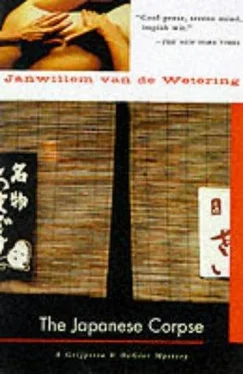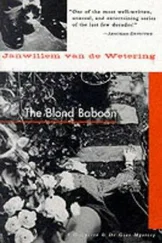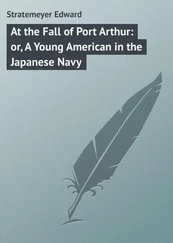Janwillem De Wetering - The Japanese Corpse
Здесь есть возможность читать онлайн «Janwillem De Wetering - The Japanese Corpse» весь текст электронной книги совершенно бесплатно (целиком полную версию без сокращений). В некоторых случаях можно слушать аудио, скачать через торрент в формате fb2 и присутствует краткое содержание. Жанр: Полицейский детектив, на английском языке. Описание произведения, (предисловие) а так же отзывы посетителей доступны на портале библиотеки ЛибКат.
- Название:The Japanese Corpse
- Автор:
- Жанр:
- Год:неизвестен
- ISBN:нет данных
- Рейтинг книги:3 / 5. Голосов: 1
-
Избранное:Добавить в избранное
- Отзывы:
-
Ваша оценка:
- 60
- 1
- 2
- 3
- 4
- 5
The Japanese Corpse: краткое содержание, описание и аннотация
Предлагаем к чтению аннотацию, описание, краткое содержание или предисловие (зависит от того, что написал сам автор книги «The Japanese Corpse»). Если вы не нашли необходимую информацию о книге — напишите в комментариях, мы постараемся отыскать её.
The Japanese Corpse — читать онлайн бесплатно полную книгу (весь текст) целиком
Ниже представлен текст книги, разбитый по страницам. Система сохранения места последней прочитанной страницы, позволяет с удобством читать онлайн бесплатно книгу «The Japanese Corpse», без необходимости каждый раз заново искать на чём Вы остановились. Поставьте закладку, и сможете в любой момент перейти на страницу, на которой закончили чтение.
Интервал:
Закладка:
He was taken aback by her sudden violence and felt a spurt of anger, tickling around in his stomach, wanting to rise to his brain. He tried to control it, but some of it came up all the same. "Let go of your sheet," he shouted. "You are supposed to watch the jib, it's much too tight. Look at the mainsail, it's standing right out, and the jib is glued to the mast."
She bowed her head in submission and let the thin rope slip through her hands.
"Like this?"
"Yes," he shouted, and she bowed again. He felt silly and dropped his voice. "There is the fishing boat," he said, pointing ahead. "The boat we saw before when we left the harbor. It must have gone straight to the island while we were fiddling about near the shore. It's already been to the island and is coming back now, I think."
"How good are your eyes?" she asked.
"All right, why?"
"I need glasses, but they are in my bag. I only wear them when I am alone. Can you see who is in the boat?"
"I can see a man at the tiller."
"Can you see his eyebrows?"
"No," de Gier said. "Of course not. I am not an eagle. The boat is too far. Does the daimyo have special eyebrows?"
"Tufted," she said, "and very black. He has little hair on his head, just a gray fringe but his eyebrows are jet black. I think he dips them in ink." She giggled.
De Gier screened his eyes and looked again. "Can't see, and the boat has come about and is tacking away from us now. I would say that the man at the tiller is young. Did the daimyo say he was going to use a fishing boat?"
She shook her head.
"I see the torii now," he said. "Why is it there? Two big beams and a sloping roof. Why are the beams orange? I thought Japanese didn't like to use paint but preferred natural colors?"
"A decoration to please the water gods," she said, and pulled at the sheet. The jib had begun to flap, for the cutter was sailing much closer to the wind as de Gier steered toward a small bay. They passed close to the torii, a solid structure; the beams were at least a foot thick.
It had been built half a mile from the island's shore and the waves were chopping against the gleaming orange paint, lapping the gate with their green tongues and rubbing it with white frothy heads. Two large wooden posts rose from the water; its roof was tiled, sloped like the temples in Kyoto. A capricious structure built in honor of the water gods, de Gier thought. Maybe I should try and sail straight through it. A small show of bravery. The lake isn't friendly, neither is the island. The daimyo knows the lake and is using it against me. He tried to recall his plan. He only had one goal, to meet the daimyo in order to identify him, and to provoke him if possible so that he could be arrested and taken to court. He also tried to recall his guesses that would explain the daimyo's plan. The daimyo, he thought, and he imagined the commissaris thinking along the same line, was no longer interested in frightening them out of Japan. He might still like to chase them off, but he was probably thinking that he wouldn't be able to. The daimyo didn't intend to have them killed. Two dead foreigners would embarrass the country and might lead to the daimyo's fall. But the daimyo wasn't giving in either. The game was still on or he wouldn't be here, sailing a cutter around a Watergate. The daimyo obviously thought them to be what they were pretending to be, two Dutchmen, representatives of an unlawful organization prepared to buy stolen art and drugs. The daimyo had no way to check their background in Holland, for his men in Amsterdam were in jail. The daimyo was now moving toward a union of the Dutch organization and his own, and this boating trip with the charming and seductive Yuiko was his attempt to make contact. The daimyo had surmised that de Gier wanted to make contact too, for why would he have visited the Golden Dragon otherwise? So all he, de Gier, had to do now, was to go ahead and see what the daimyo had planned for him to get into that day. He checked his thoughts again as he sailed the cutter around the torii once more. Yes, it all seemed quite logical. And Dorin was around in case he was wrong. It might be that the daimyo meant to kill him, after all, and would try to kill the commissaris in Kyoto at the same time. But the commissaris was protected. Two of Dorin's men would be with him now, sitting in the public bathhouse most probably, and others would be around the building. Dorin's commandos, the Snow Monkeys, out of uniform, eager young men, well trained. If something went wrong, he, de Gier, would be the victim. Dorin's boat wasn't visible; it would take time for Dorin to catch up with him. He had been given a small radio transmitter, small enough to fit in the pocket of his Windbreaker. If he pressed a button Dorin would appear. He thought he had seen Dorin's boat a little earlier, a dot on the far side of the lake. It would probably be a fast motorboat, but it would still need half an hour or an hour to catch up with him.
The fishing boat had become invisible again as it was swallowed by a line of rocks, jutting out from the island's beach, and he told Yuiko to throw out the anchor. The cutter was close to the island now and he could see the lake's sandy bottom. By paying out the anchor's rope and raising the centerboard they managed to get the cutter close enough to the shore so that they could walk through the shallow water and he took off his shoes and rolled up his jeans. Yuiko had helped him to lower the flapping sails and stood next to him on the small after-deck staring at the water and a shoal of small fish darting about nervously, occasionally turning over and flashing their minute silver bellies. He carried her to the beach, and she kissed him as he waded through the low waves chasing each other to the strip of sand where they broke. She was pressing her breasts against his chest and caressing the thick hair on his neck, and he kissed her cheek and lost his footing and nearly fell.
"Abunai yo," she whispered. "It's dangerous here."
He smiled. There didn't seem to be much danger around. If he fell he would wet his clothes; they would dry again in the sun and wind. He returned to the boat to pick up the hamper. He still had the feeling he had found in himself as he had waked up in the commissaris' house after the accident in Amsterdam, breaking gently out of his fogged drugged sleep and contemplating the patchwork blanket which the commissaris' wife had tucked in neatly only a few minutes before. He had defined the feeling as consisting of two words: nothing matters. A very strong feeling blotting out all other sensations. Nothing matters, he told himself now as he put the hamper down on a rock. Nothing at all. "I was a balloon," he said aloud, and turned toward the lake. A balloon, a small round bloated toy, floating about thinking it had a life and an identity of its own, until something made it pop. I popped, he thought, and grinned vaguely. He remembered the hippies who would wander into the police stations of Amsterdam to tell the police that they had flipped and that everything had become different. But I didn't flip, he thought, gazing at the lake stretching away endlessly, I popped. Flipping is just a change of direction, popping is final. There had been nothing tangible as he looked at the patchwork blanket. A shape, a form, lying in a clean bed, and now putting down a hamper on a rock. A hamper made out of dry bleached stalks on a gray dead rock, spotted with yellow lichen. His thoughts kept on forming themselves, clear and crisp, like teletype messages coming out of a transmitter. I move, he thought, and I talk and I listen and dress and undress and shave and I drive a sports car and sail a boat and maybe I'll sleep with this girl before the day is over and if the daimyo's way of playing chess differs from what I am anticipating, I may get killed today too. I dream and the daimyo dreams and our dreams touch today, but nothing is happening. I am not taking part, I have nothing to take part with.
Читать дальшеИнтервал:
Закладка:
Похожие книги на «The Japanese Corpse»
Представляем Вашему вниманию похожие книги на «The Japanese Corpse» списком для выбора. Мы отобрали схожую по названию и смыслу литературу в надежде предоставить читателям больше вариантов отыскать новые, интересные, ещё непрочитанные произведения.
Обсуждение, отзывы о книге «The Japanese Corpse» и просто собственные мнения читателей. Оставьте ваши комментарии, напишите, что Вы думаете о произведении, его смысле или главных героях. Укажите что конкретно понравилось, а что нет, и почему Вы так считаете.












